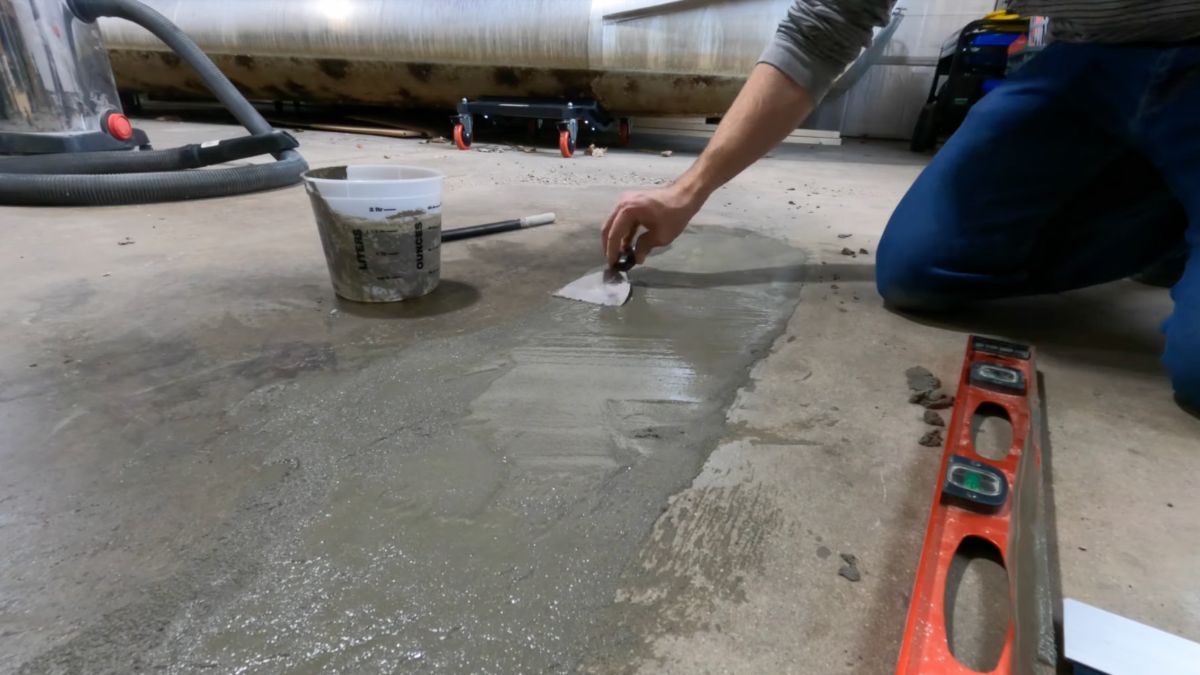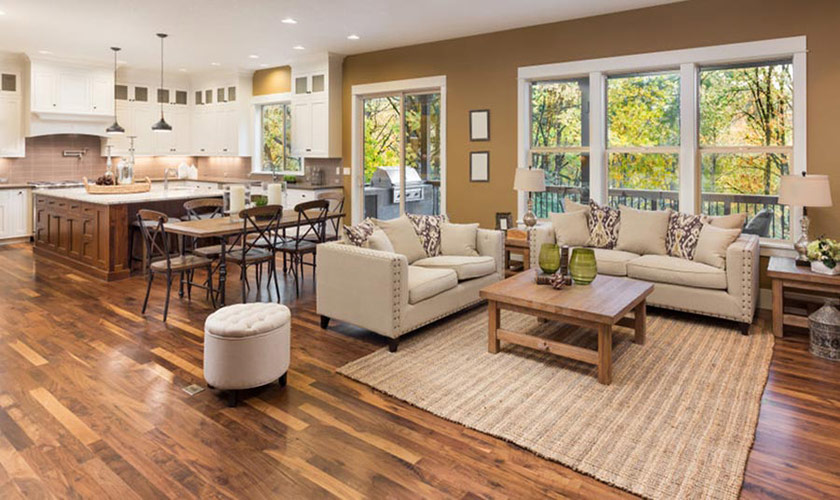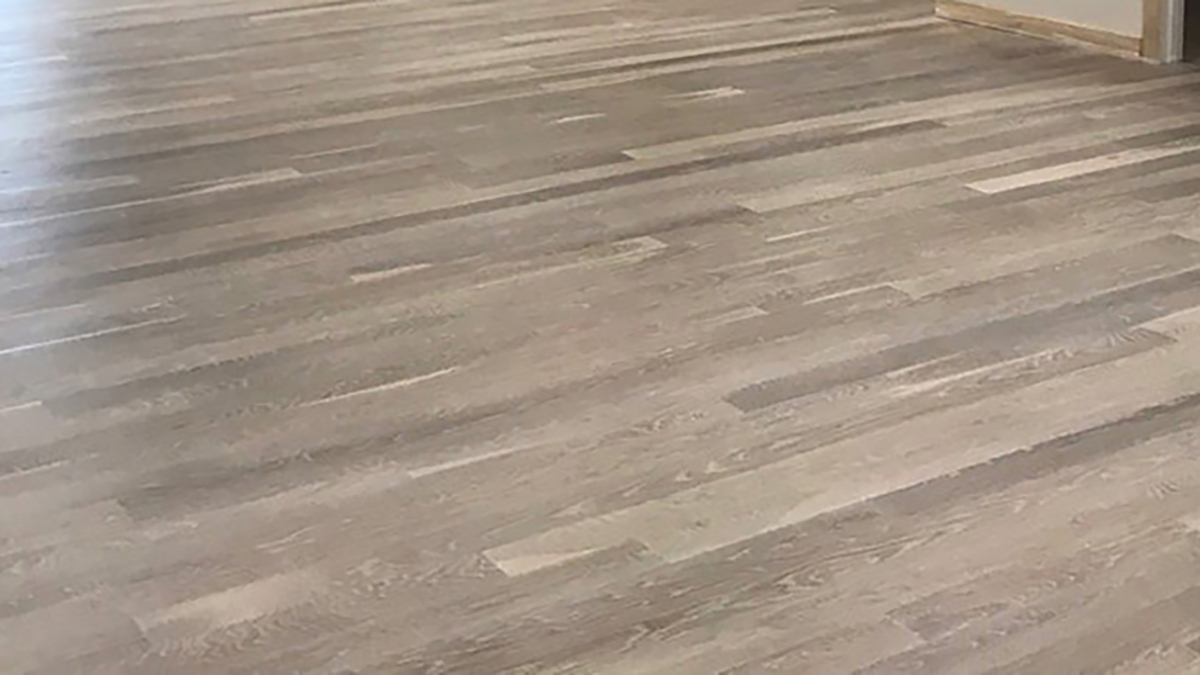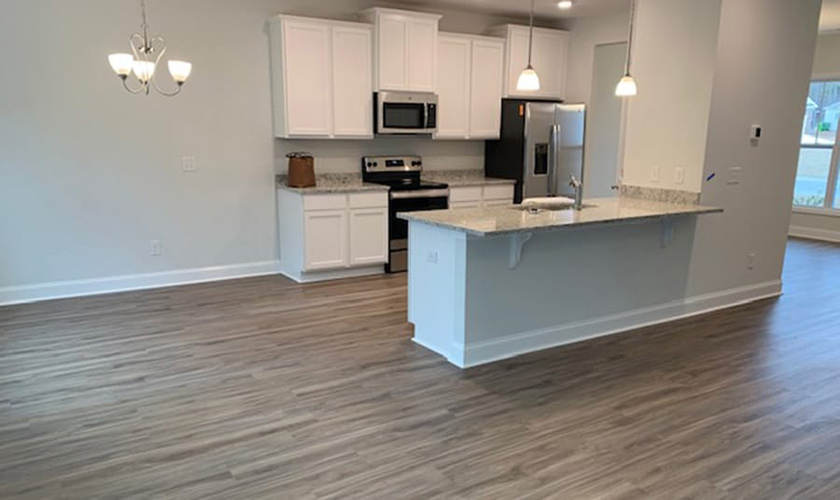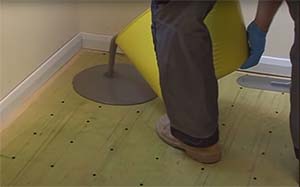As a dog owner, you understand that your furry companion is not just a pet but a cherished family member. Naturally, you want the best for them, including pet-friendly flooring in your home. But, “Which flooring option is most suitable for dogs?”
Selecting the ideal flooring for your canine companions is of utmost importance. It should possess durability, comfort, and ease of cleaning.
The best flooring for dogs Includes luxury vinyl plank, tile, and stone flooring, which are often recommended for their durability and ease of cleaning. If comfort for your pet is a priority, consider carpets or rugs, but be prepared for more intensive cleaning.
Finding the perfect flooring for your furry friend involves balancing your needs and theirs, all while maintaining style and comfort. So, don’t rush the decision— take the time to research and choose a flooring that suits you and your beloved pet.
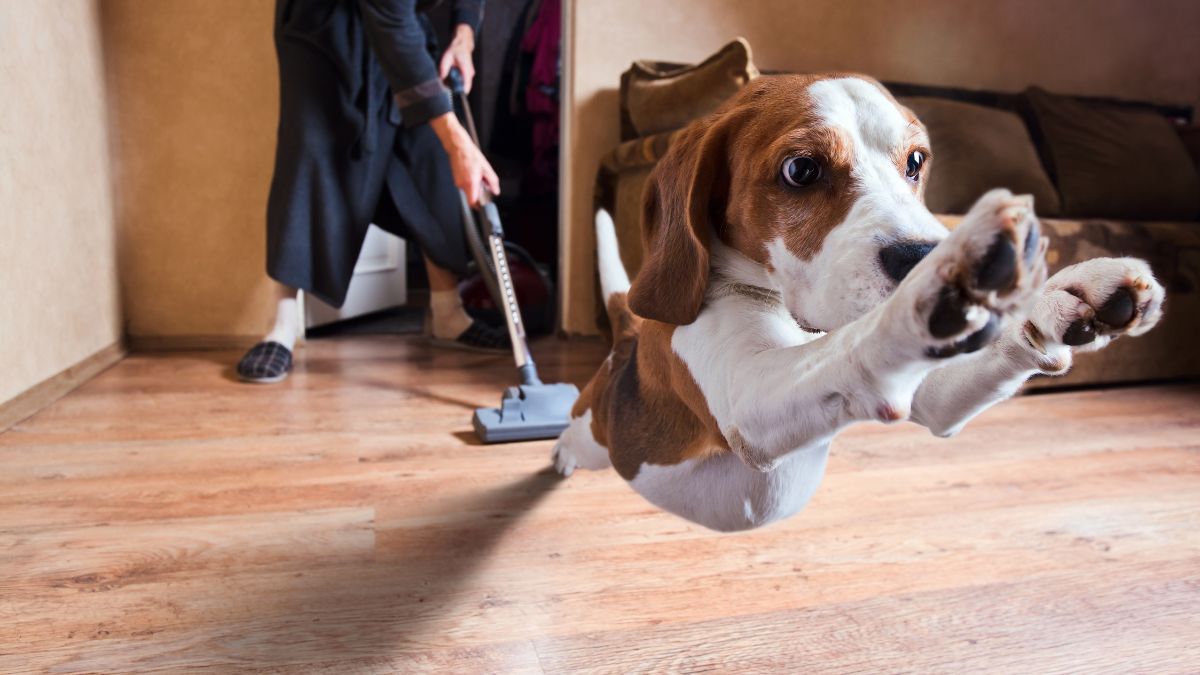
The Need for Dog-Friendly Flooring
As a home inspector and a dog owner (Milli and Bubbles), I’ve seen firsthand the impact our furry companions can have on a home’s flooring. My bull-terrier, Bubbles, is a large, active dog that loves running and playing. While endearing, it can be harsh on my hardwood flooring.
I’ve seen scratches on solid hardwood, permanent stains on the carpet, and even dents on laminate flooring in my home. But I’ve also discovered the solution: dog-friendly flooring.
Dog-friendly flooring is designed with the needs of pets in mind. Its durable floor materials, stain, and scratch-resistant finish make it one of the popular flooring options for your dogs to walk and lie on. But the benefits don’t stop there.
- Durability: From my experience, dog-friendly floors are designed to withstand the wear and tear of having dogs. They resist scratches, dents, and stains, ensuring your floors stay looking great for longer.
- Easy to Clean: Accidents happen, especially if you have a puppy. Dog-friendly floors are easy to clean, making those little messes less of a headache.
- Comfort: Max’s comfort is important to me. Dog-friendly floors are comfortable for dogs to walk and lie on, making them an excellent option for your furry friend.
- Aesthetically Pleasing: Just because it’s dog-friendly doesn’t mean it can’t be stylish. Many dog-friendly flooring options are beautiful and can enhance the look of your home.
By choosing dog-friendly flooring that benefits you and your pet. As someone who’s seen the effects of the wrong flooring type, I can tell you the right choice makes a world of difference.
4 Pet-Friendly Factors to Consider When Selecting New Flooring
Choosing the best flooring for pets involves several factors:
- Size and Breed of Your Dog. Larger dogs with heavier bodies and harder nails can cause more wear and tear on particular floors.
- Age of Your Dog. Older dogs may struggle on slick surfaces, while puppies, still in their house-training phase, are prone to accidents and require easy clean-up.
- Your Dog’s Behavior. Is your dog active and playful, or more relaxed and calm? Active dogs cause more scratches and long-term damage to the floor, while calmer dogs might not cause as much major damage.
- Location and Climate of Your Home. Some flooring options might be better suited for warmer climates, while others are more appropriate for colder ones.
6 Best Types of Flooring For Dogs
With these factors in mind, let’s explore some pet-friendly flooring options to consider for your home:
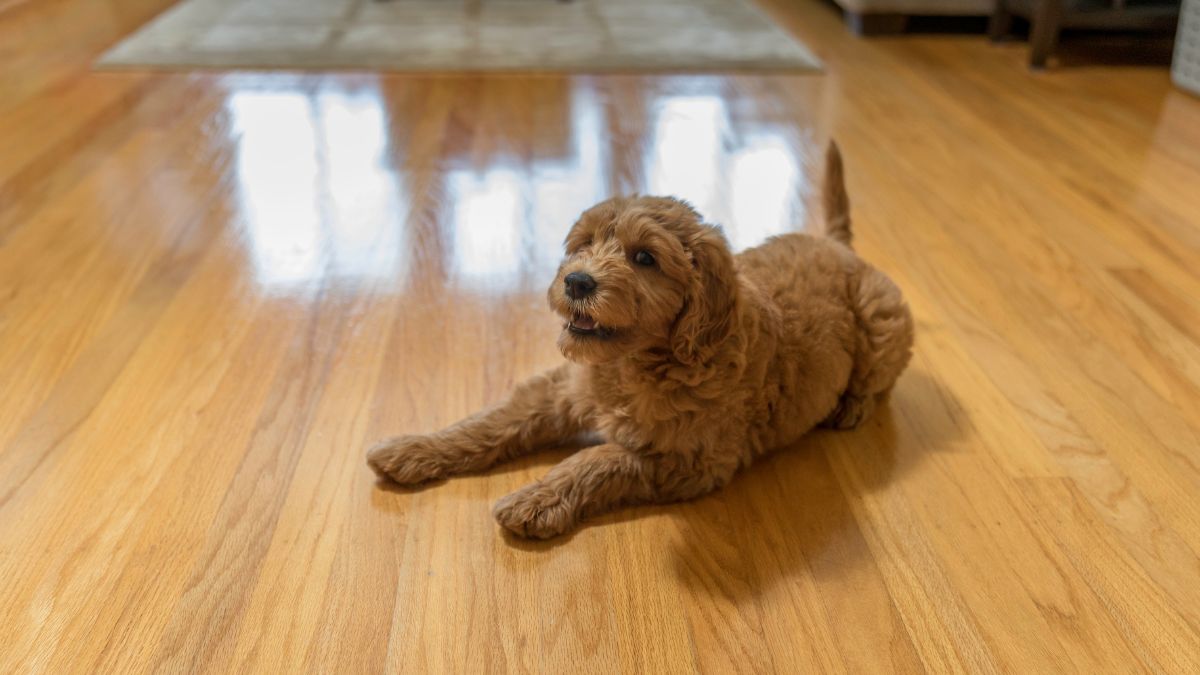
Hardwood Flooring
Best for: Small to medium-sized dogs with softer nails.
Not suitable for: Larger dogs with harder nails.
Are you captivated by the timeless elegance of solid hardwood floors? Real wood’s allure and added value to your home are undeniable. However, is this an excellent choice for your furry companion?
Hardwood flooring is durable and easy to clean, making it a good choice for pet parents. However, it can be prone to scratches, especially from larger dogs with harder nails. Some types of hardwood, like oak or mahogany, are harder and more resistant to scratches.
But don’t worry. There are many ways you can protect your hardwood floors. Regular grooming of your dog’s sharp claws and using protective pads on your furniture help prevent scratches.
Pros
- Elegant and timeless style
- Adds value to the home
- Durable flooring
- Easy to clean
Cons
- Prone to scratches especially from larger dogs
Laminate Flooring
Best for: Dogs of all sizes, particularly those with a calm demeanor.
Not suitable for: Older dogs who may struggle with traction.
Laminate flooring is a great option for homes with dogs due to its scratch resistance and easy maintenance. However, it’s important to note that laminate can be slippery for dogs, particularly older ones.
Consider using area rugs or mats in high-traffic areas to prevent slips and falls. When selecting laminate flooring, opt for a textured or embossed finish for enhanced traction to reduce the risk of slips and falls.
Pros
- Resistant to scratches
- Easy to maintain,
- More affordable than other options
Cons
- Slippery for dogs, especially older ones
- Requires additional rugs or mats for traction
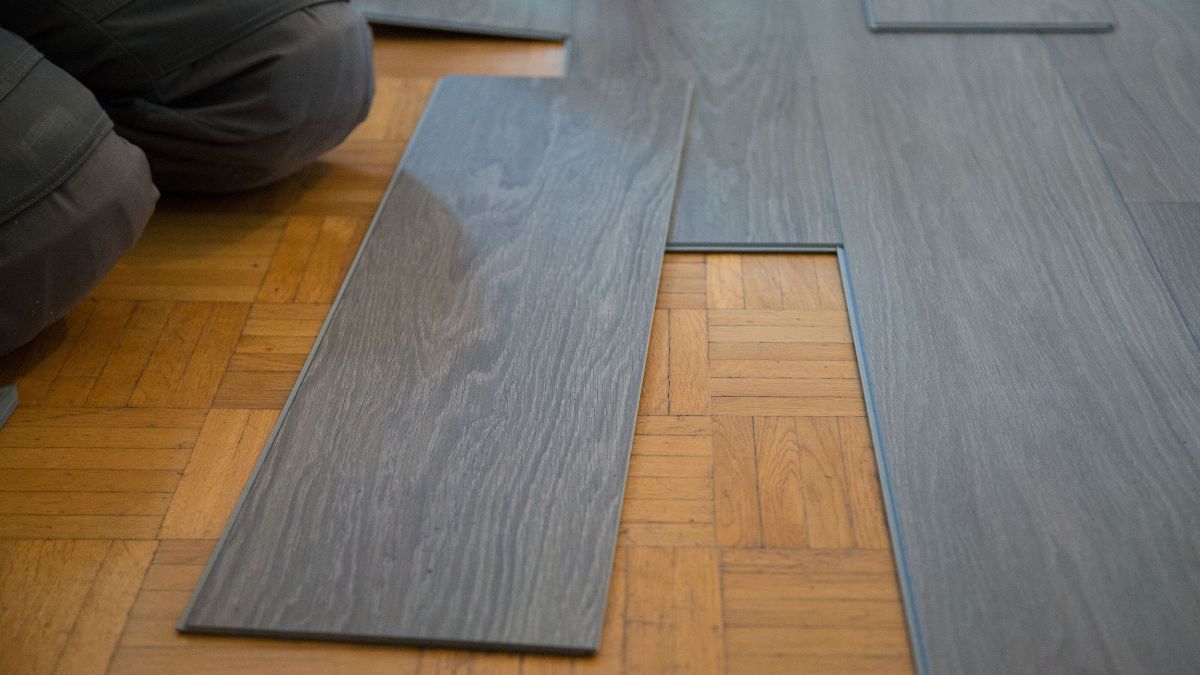
Vinyl Flooring
Best for: Dogs of all sizes and ages, particularly active dogs.
Not suitable for: Homes with multiple pets, as it can be less durable than other options.
Luxury vinyl flooring has become a go-to choice for dog owners because it’s water resistant, scratch-resistant, and boasts beautiful color options. What’s more, cleaning becomes a breeze with this flooring option.
When choosing luxury vinyl plank flooring, look for thicker options as they are more durable and comfortable for your dog.
Pros
- Water-resistant
- Scratch-resistant flooring
- Easy to clean
- Warm and soft floors
Cons
- Quality varies
- Thicker vinyl is more durable and comfortable
Tile and Stone Flooring
Best for: Dogs living in warmer climates, as the cool surface can be appreciated.
Not suitable for: Older dogs or dogs with joint issues due to the hard surface.
Ceramic tiles and natural stones are excellent options for dog owners due to their durability and ease of cleaning. Their cool surface can provide a refreshing respite for your furry friend, particularly on hot days.
However, traditional tile floors can be hard and cold, which might not be comfortable for your dog to lie on. Use area rugs to give your dog a softer and warmer resting spot.
Pros
- Durable surface
- Easy to clean
- Cool surface (appreciated by dogs in hot climates)
Cons
- Hard and cold surface
- Uncomfortable for dogs to lie on
- Require additional rugs for comfort
Bamboo and Cork Flooring
Best for: Dogs of all sizes, particularly those in eco-conscious homes.
Not suitable for: Homes with multiple pets, as it can be less durable than other options.
Bamboo or cork flooring is an excellent option for those seeking environmentally friendly choices. Not only are they sustainable, but they also offer impressive durability and scratch resistance.
Bamboo flooring is exceptionally durable compared to most hardwood options, making it an excellent choice for households with canine companions. Conversely, the cork floor is softer and provides a cushiony feel underfoot, which your dog might appreciate.
Pros
- Eco-friendly
- Sustainable
- Durable
- Resistant to scratches
- Bamboo is harder than most hardwoods
- Cork provides a comfortable underfoot
Cons
- Expensive option than others; not recommended for pet lovers on a tight budget
- Require special care to maintain
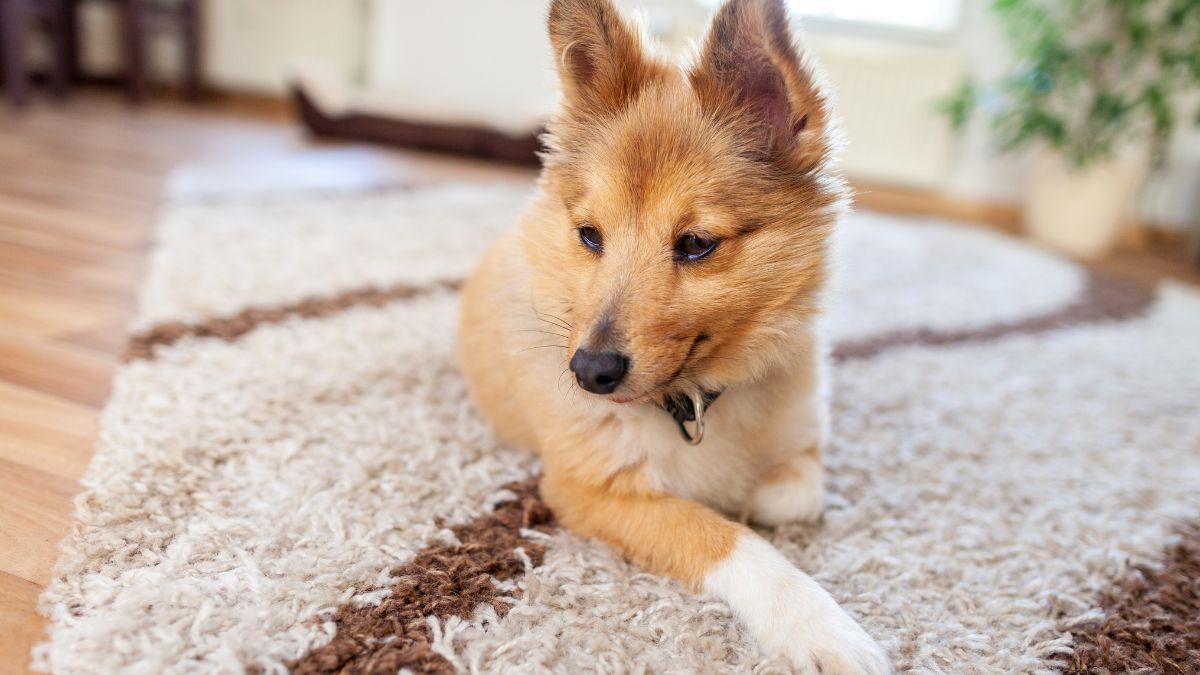
Carpet and Rugs
Best for: Dogs of all sizes, particularly those in eco-conscious homes.
Not suitable for: Homes with multiple pets, as it can be less durable than other options.
Carpet and rugs offer a plush and cozy surface for your furry friend, providing comfort and support. They minimize the sound of your dog’s paws on the floor, creating a quieter and more peaceful environment, but are harder to clean and will trap odors.
If you choose carpet, look for easy-to-clean and stain-resistant carpets. Consider machine-washable rugs or low-pile carpets that are easy to spot clean.
Pros
- Provides a soft and comfortable surface for dogs
- Reduces noise from dog’s nails clicking on the floor
Cons
- Harder to clean
- Trap odors
- Requires stain-resistant options or easy-to-clean rugs
Cost Comparisons
Here is a table summarizing the cost range for each floor type:
| Flooring Materials | Cost per Square Foot |
|---|---|
| Hardwood Floors | $6 – $22 |
| Laminate | $1 – $5 |
| Luxury Vinyl Planks or Linoleum | $0.50 – $5 |
| Tile Flooring | $1.50 – $9 |
| Bamboo and Cork | $3 – $8 |
| Carpet and Rugs | $2 – $7 |
Please note these average costs vary based on the flooring material’s quality, the installation’s complexity, and the region where you live.
Tip
Always get multiple quotes before making a decision.
Tips for Maintaining Floors with Dogs
Maintaining your floors with dogs in the house might seem daunting, but with the right tips and tricks, it’s easier than you think.
Cleaning is Key
Vacuum or sweep your floors regularly to remove pet hair and dirt. For hardwood, laminate, vinyl, tile, and stone floors, use a damp mop with a cleaner suitable for the specific type of flooring. Consider a deep cleaning every few months for carpets and rugs to remove any trapped dirt and odors.
Handle Scratches and Damage
Scratches and other damage are inevitable when you have dogs. Use a touch-up kit available at most home improvement stores for minor scratches on hardwood or laminate floors. You might need to sand and refinish the area for deeper scratches or gouges.
Vinyl, ceramic tile, and stone floors are resistant to scratches, but individual tiles or planks often need to be replaced if damage occurs. For carpets and rugs, professional repair is required for serious damage.
Groom Regularly
Keep your dog’s nails trimmed to prevent deep scratches. Regular brushing reduces the amount of hair that ends up on your floor. Don’t forget to wipe your dog’s paws when they come in from outside to prevent dirt and muddy paw prints onto your floors.
FAQs About Flooring for Dog Owners
Let’s shed some light on the most frequently asked questions to guide you.
Do dogs scratch vinyl plank flooring?
Yes, pet claws can scratch vinyl plank flooring, especially if they have long nails. However, high-quality vinyl is generally resistant to scratches.
What is the most dog-proof flooring?
Tile and stone floors are the most dog-proof options because they are durable, scratch-resistant, and easy to clean. However, it can be hard on their hips and back, particularly in larger dogs.
Is vinyl plank or laminate better for dogs?
Both have their advantages. Vinyl plank is water-resistant and softer underfoot, while laminate is scratch-resistant and mimics the look of natural wood.
What floors do dogs not slip on?
Carpet and rugs provide the best traction for dogs. Among hard flooring options, textured finishes on laminate or vinyl help prevent slipping.
What is the worst flooring for dogs?
Hardwood flooring is a wrong choice for dogs as it is prone to scratches and has slippery surfaces, especially if it’s not sealed correctly.
Is tile flooring good for dogs?
Tile flooring can be a great option for homes with dogs. It is easy to clean, water-resistant, and slip-resistant, making it a safe and practical choice for your pup. Additionally, tile flooring can retain heat better than other flooring types, helping keep your pup warm and comfortable in colder weather.
Takeaway
When selecting new pet-friendly flooring for your home, weighing the pros and cons of each option is important. Your dog’s size, age, and behavior, as well as your home’s location and climate, play a significant role in finding the most suitable flooring options.
The most dog-proof flooring is often vinyl due to its resistance to scratches and pet stains. For comfort and durability, textured laminate or area rugs on slippery floors. Don’t forget regular maintenance, from cleaning to grooming your dog, to keep your floors looking their best.


